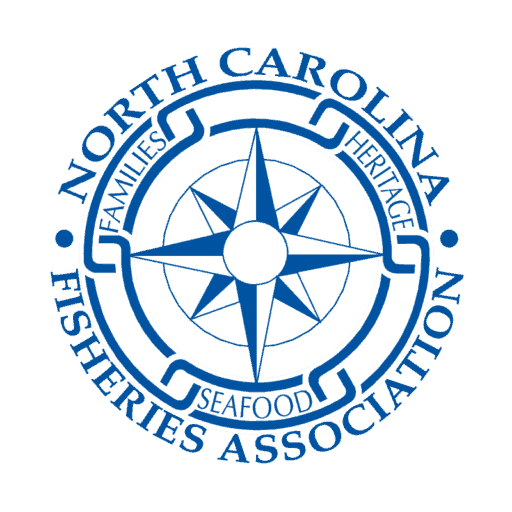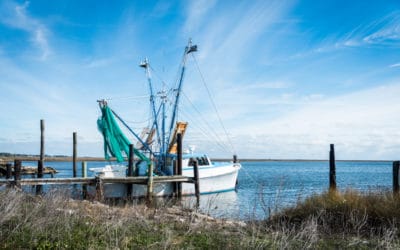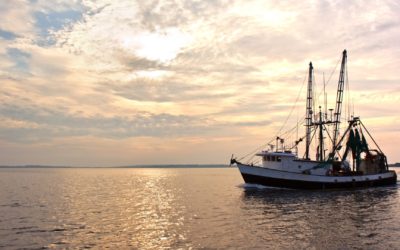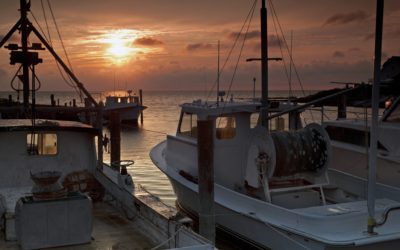Recent management actions on species like Striped Bass and Southern Flounder have caused quite an uproar among commercial and recreational fishermen in NC. The restrictions on these very popular fish have caused many fishermen to blame competing sectors or specific gears for the stock declines in a last-ditch effort t protect their ever-shrinking piece of the pie.
In the midst of all of this ugliness is a very vocal minority urging stakeholders, managers and lawmakers to look to other states as an example of how we should be managing our fisheries. They point to liberal size and bag limits on species like southern flounder and speckled trout as proof that severely restricting or banning commercial gears has improved fish stocks in other states. While it’s true that states that have severely restricted commercial gears have more liberal recreational limits it is irresponsible to suggest this is proof of successful management or healthy fish stocks. With very little research you will find that Texas, Louisiana, Mississippi, Alabama, Florida, Georgia and South Carolina are all dealing with depleted or overfished stocks on prized recreational species like southern flounder and speckled trout. In many cases the liberal recreational limits are responsible for the decline in other cases environmental factors such as warming waters and pollution appear to play a significant role but there is little to no mention of commercial gears as they were removed years ago.
In Louisiana for example, the number of reproducing speckled trout has steeply dropped to 3 million pounds, down from 11 million pounds in 2000. This decline is most certainly a result of the dramatic increase in recreational effort and 25 fish per day bag limit as there are only a dozen fishermen left harvesting trout commercially and that harvest is limited to hook and line gear only. While Louisiana fishermen are awaiting new restrictions, Florida has already reduced recreational bag limits for Speckled Trout in some area and prohibited harvest in others due to massive fish kills in recent years resulting from poor water quality, but again there is no mention of commercial gears as they were banned in the mid 90’s. Florida chose to focus on removing commercial gears from the water and largely ignored habitat and water quality concerns and as a result their fish, sea grasses, sea turtles and marine mammals are dying from red tides, brown tides and toxic algal blooms.
It’s apparent to me that the very vocal minority wish to lead NC down a similar path. The North Carolina Wildlife Federation recently filed a petition for rulemaking seeking to limit shrimp trawling in NC, in that petition they state that “while environmental factors such as habitat loss and poor water quality may affect the status of fish stocks fishing practices also contribute to the decline and depletion of several stocks and are more controllable.” While it’s definitely easier to control or eliminate commercial harvest, the easy road may not get you where you need to be and Florida is a perfect example. The fact is a fish can only die once and it does not matter if he died at the hands of recreational fishermen or commercial fishermen or as a result of predation or pollution, once removed from the stock the impact is the same. To successfully manage our fisheries, we don’t need to blindly follow these other states who are obviously struggling with similar issues instead we need to acknowledge that banning gillnets and trawls has not fixed their problems and will not solve ours. There are things we can learn from these states though and enhancement of marine stocks with hatchery raised fish is a perfect example. States like Texas and Florida annually release millions of hatchery raised fish to make up for annual variabilities in fish abundance and to reduce the negative impacts fishing has on wild stocks.
While stocking alone will not prevent overfishing, it does help to stabilize landings and could easily be done in NC. Stocking of southern flounder has been suggested as a possible way to help rebuild that stock, an idea that was dismissed by the CCA’s Executive Director David Sneed during his public comments at the August MFC meeting when he suggested stocking would not be necessary if NC stopped shrimp trawling. These comments seem to be contrary to the position of the CCA in Texas and Florida as they actively support and finance stocking even after inside trawling and gillnetting was banned. Perhaps this position stems from concerns that more fish in the water may mean less support for removing commercial gears from NC waters. While this assumption is just speculation on my part, it is a fact that the vocal minority are actively working to convince disgruntled fishermen and lawmakers that commercial gears are the root of all of North Carolinas fishery issues. I urge everyone to ignore the rhetoric, do your homework and make sure your opinions are based on fact before blaming any one group or gear for the problems we all created.
Glenn Skinner, NCFA Executive Director

Related Articles
A Word From The Chairman
Related Articles Stay Up to Date With The Latest News & Updates Join Our Newsletter
A Word From Jerry Schill
Related ArticlesStay Up to Date With The Latest News & UpdatesJoin Our Newsletter
An Update From Glenn
Related Articles Stay Up to Date With The Latest News & Updates Join Our Newsletter



